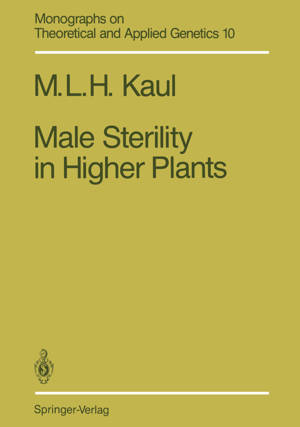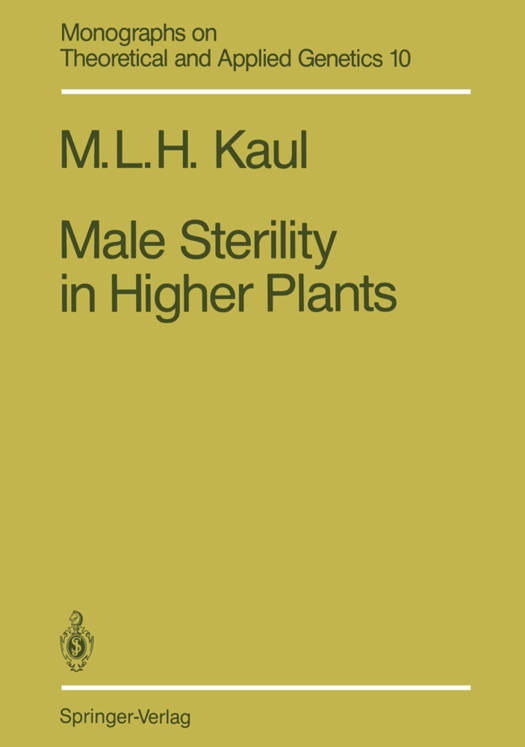
- Retrait gratuit dans votre magasin Club
- 7.000.000 titres dans notre catalogue
- Payer en toute sécurité
- Toujours un magasin près de chez vous
- Retrait gratuit dans votre magasin Club
- 7.000.000 titres dans notre catalogue
- Payer en toute sécurité
- Toujours un magasin près de chez vous
Description
" . . . . . . Nature has something more in view than that its own proper males should fecundate each blossom. " Andrew Knight Philosophical Transactions, 1799 Sterility implicating the male sex solely presents a paradoxical situation in which universality and uniqueness are harmoniously blended. It maintains a built-in outbreeding system but is not an isolating mechanism, as male steriles, the "self-emasculated" plants, outcross with their male fertile sibs normally. Both genes (nuclear and cytoplasmic) and environment, individually as well as conjointly, induce male sterility, the former being genetic and the latter nongenetic. Genetic male sterility is controlled either exclusively by nuclear genes (ms) or by the complementary action of nuclear (lr) and cytoplasmic (c) genes. The former is termed genic and the latter gene-cytoplasmic male sterility. Whereas genic male sterility exhibits Mendelian inheritance, gene-cytoplasmic male sterility is non-Mendelian, with specific transmissibility of the maternal cytoplasm type. Genetic male sterility is documented in 617 species and species crosses com- prising 320 species, 162 genera and 43 families. Of these, genic male sterility occurs in 216 species and 17 species crosses and gene-cytoplasmic male sterility in 16 species and 271 species crosses. The Predominance of species exhibiting genic male sterility and of species crosses exhibiting gene-cytoplasmic male sterility is due to the fact that for the male sterility expression in the former, mutation of nuclear genes is required, but in the latter, mutations of both nuclear and cytoplasmic genes are necessary.
Spécifications
Parties prenantes
- Auteur(s) :
- Editeur:
Contenu
- Nombre de pages :
- 1005
- Langue:
- Anglais
- Collection :
- Tome:
- n° 10
Caractéristiques
- EAN:
- 9783642831416
- Date de parution :
- 12-02-12
- Format:
- Livre broché
- Format numérique:
- Trade paperback (VS)
- Dimensions :
- 170 mm x 244 mm
- Poids :
- 1592 g







